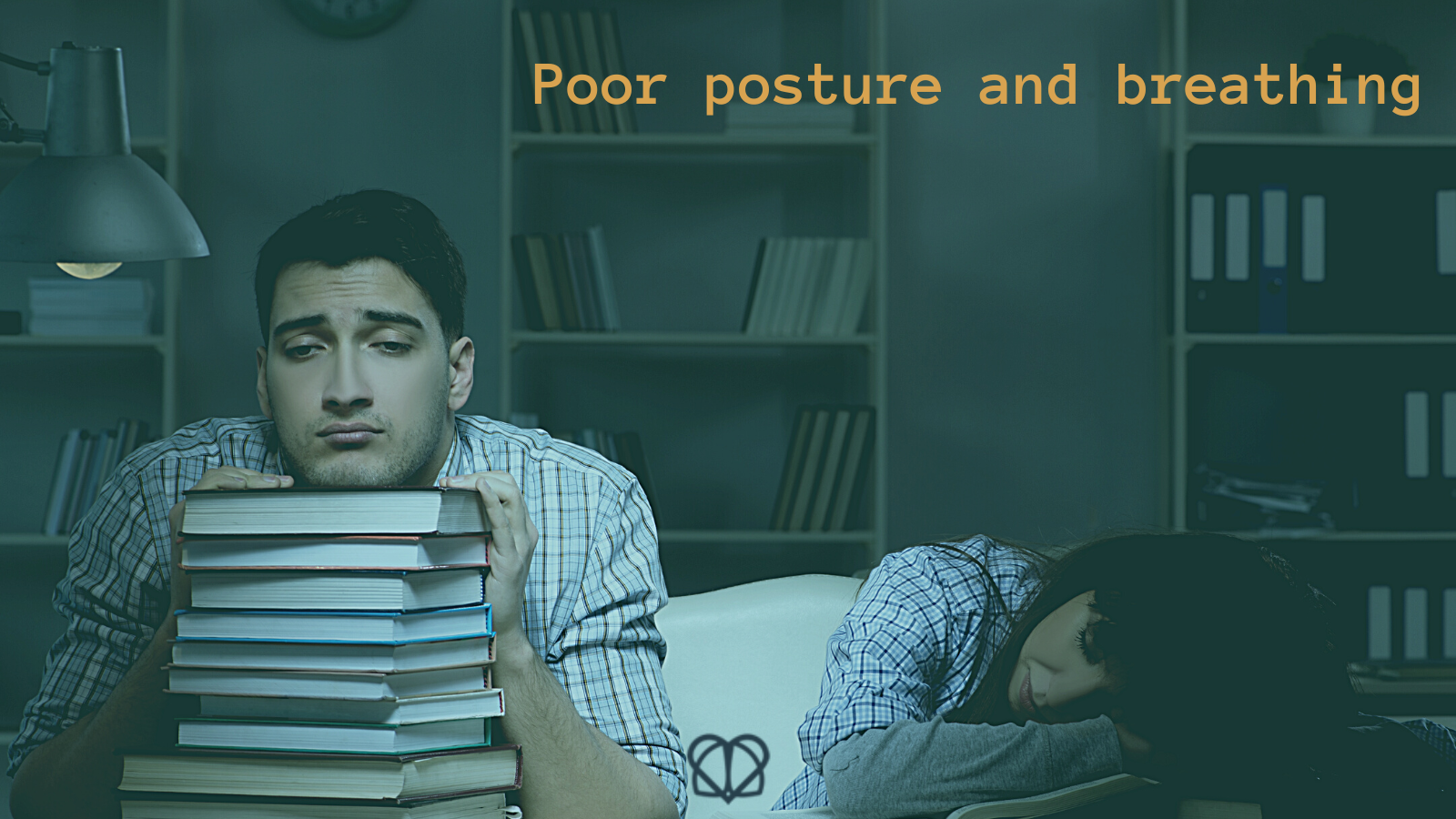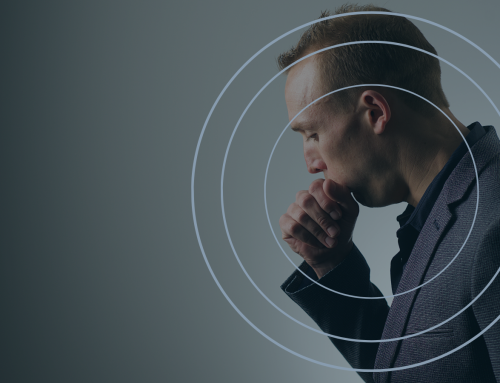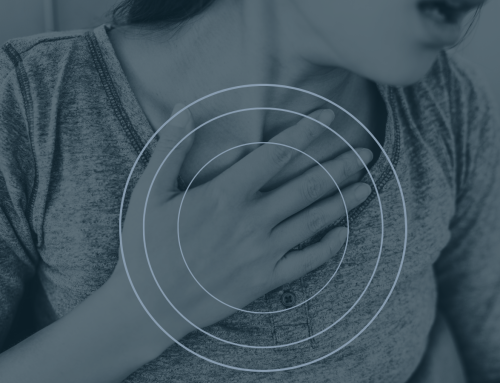This year’s A Levels and GCSE exams are almost over, much to the relief of 16-18 year olds up and down the country! Our respiratory physiotherapists have noticed an interesting correlation between the exam revision season, poor posture and patients coming to see us with breathing problems.
While poor posture isn’t necessarily the cause of these breathing issues, it most certainly exacerbates the problem…
Let’s look into why that is…
The physiology of poor posture
We all tend to hunch at least some of the time. This is because it’s naturally much more comfortable to sit in a hunched position than it is to sit up straight.
But when we sit in this hunched position, breathing correctly is more difficult. Your body needs space to breathe properly, enough room for your lungs to expand and fill with air, and for your diaphragm to descend. Hunching, or an increased thoracic kyphosis, causes your upper back to curve and your shoulders to round (protract). This means your lungs aren’t able to fill with air as easily, the functioning of the diaphragm is more limited as it isn’t able to distend properly.
Poor posture + anxiety = breathing issues… and round it goes!
It’s an unwelcome formula but an all too common one. Having poor posture can have a significant knock-on effect on your breathing.
And it’s bit of a vicious cycle: your posture is poor which means your breathing is too shallow, you begin to feel anxious about it (on top of your exam revision anxiety, which we’ve talked about in a previous blog!) which further exacerbates the issues with your breathing pattern.
Any desk-based worker can be affected, it’s not just teens who suffer with this problem. If you sit at a desk – working from home or in an office – for a prolonged period of time you may find you begin to develop breathing issues too.
Possible symptoms
Aside from an increase in breathing problems, you may also experience:
- increased fatigue
- severe headaches
- increased heartburn
What can you do about it?
There are a number of steps you can take to resolve the problem:
- Position is everything – we don’t just mean how you’re sitting, although this is of course very important. Pay attention to where you work, remembering that the sofa is for relaxing and not working, so you should always aim to work at a desk. The position of your chair, the height of your desk, the position of the keyboard also have a major role to play. When sitting at your desk, sit up straight, align your hips, shoulders, and ears in a vertical line and then place your feet firmly on the floor. If this positioning starts to become uncomfortable, instead of slouching over try shifting your body forward so your bottom is on the edge of the seat. This shifts the pressure on your hips and abdomen and removes the need to slouch.
- Keep moving – avoiding too sedentary a lifestyle is a key part of staying healthy. It can also prevent slouching as it means you’re moving your body to avoid becoming uncomfortable in one position. Try to work at yøur desk for no longer than half an hour without getting up and moving around. If you need to make calls, try walking around as you talk and aim to head outdoors for a walk at lunchtime.
Remember to practice breathing control
These breathing control exercises are incredibly useful as they can help you focus on relaxed breathing using the lower chest (diaphragm) to ensure your lungs are filling adequately.
- Lie down on your back, make yourself comfortable, and have your head supported.
- Put one hand on the top of your chest and one hand on your lower ribs or tummy. You may have to move your lower hand around as you practice in order to feel movement.
- Keep your mouth closed. As you breathe in slowly and gently through your nose, focus on your lower rib cage moving out to the side.
- your upper chest should not move. If it is, you might be taking too deep a breath!
- Try to perform this for 10 minutes, twice a day
If you’re currently experiencing similar issues and would like some help, please email enquiries@airphysiotherapy.co.uk or book an appointment with us online now.





